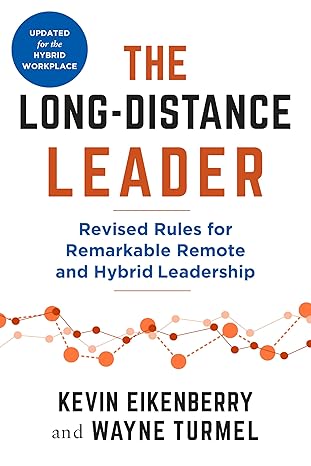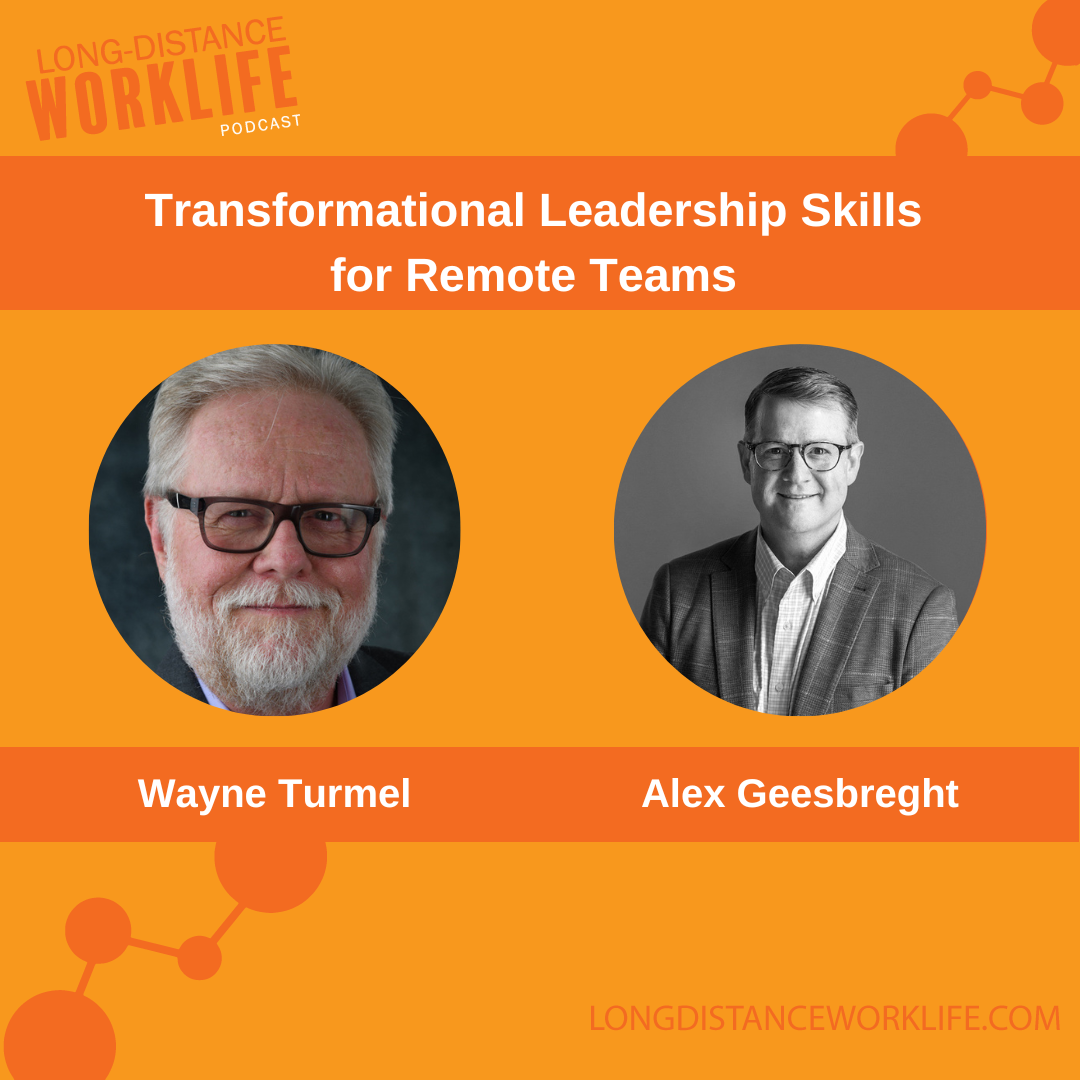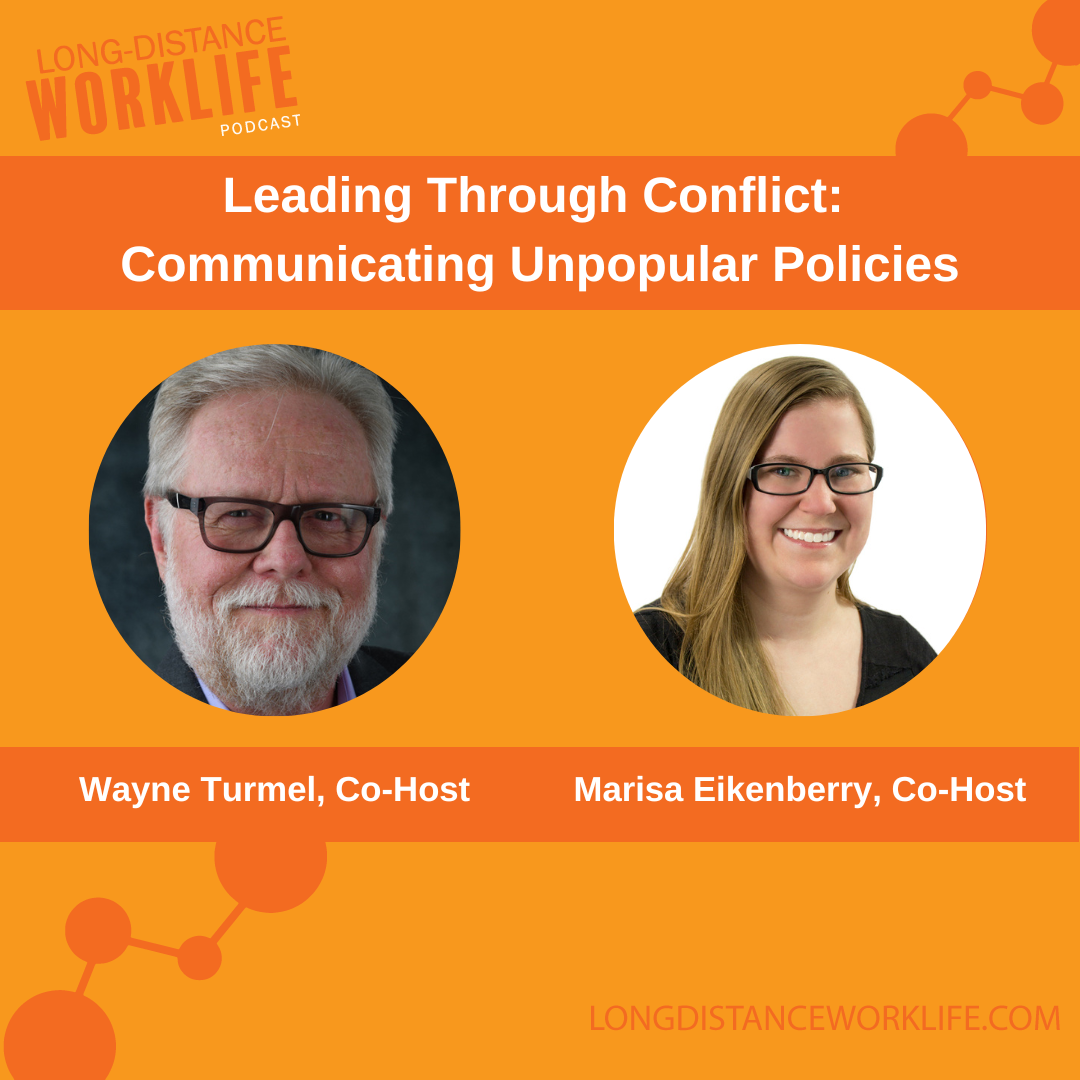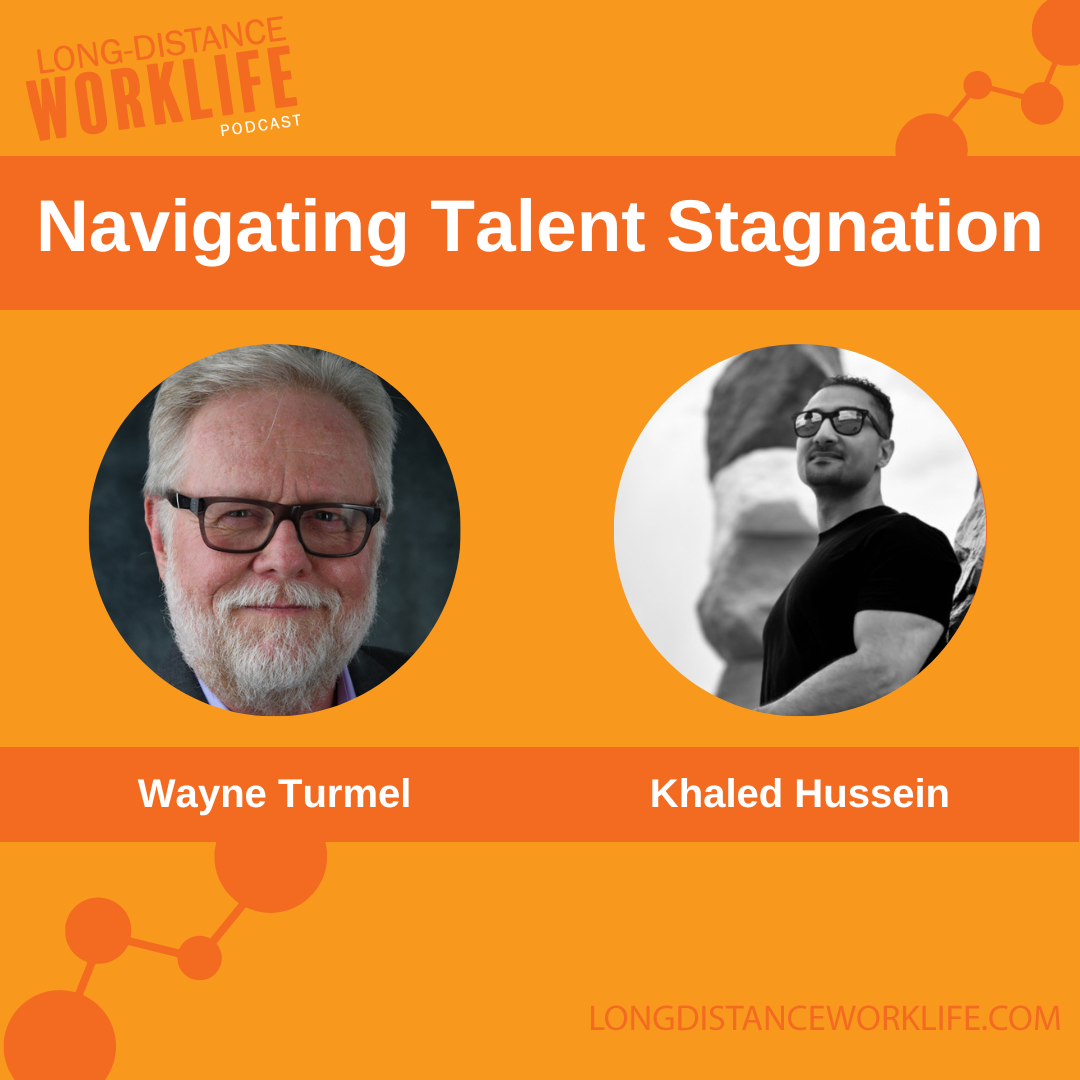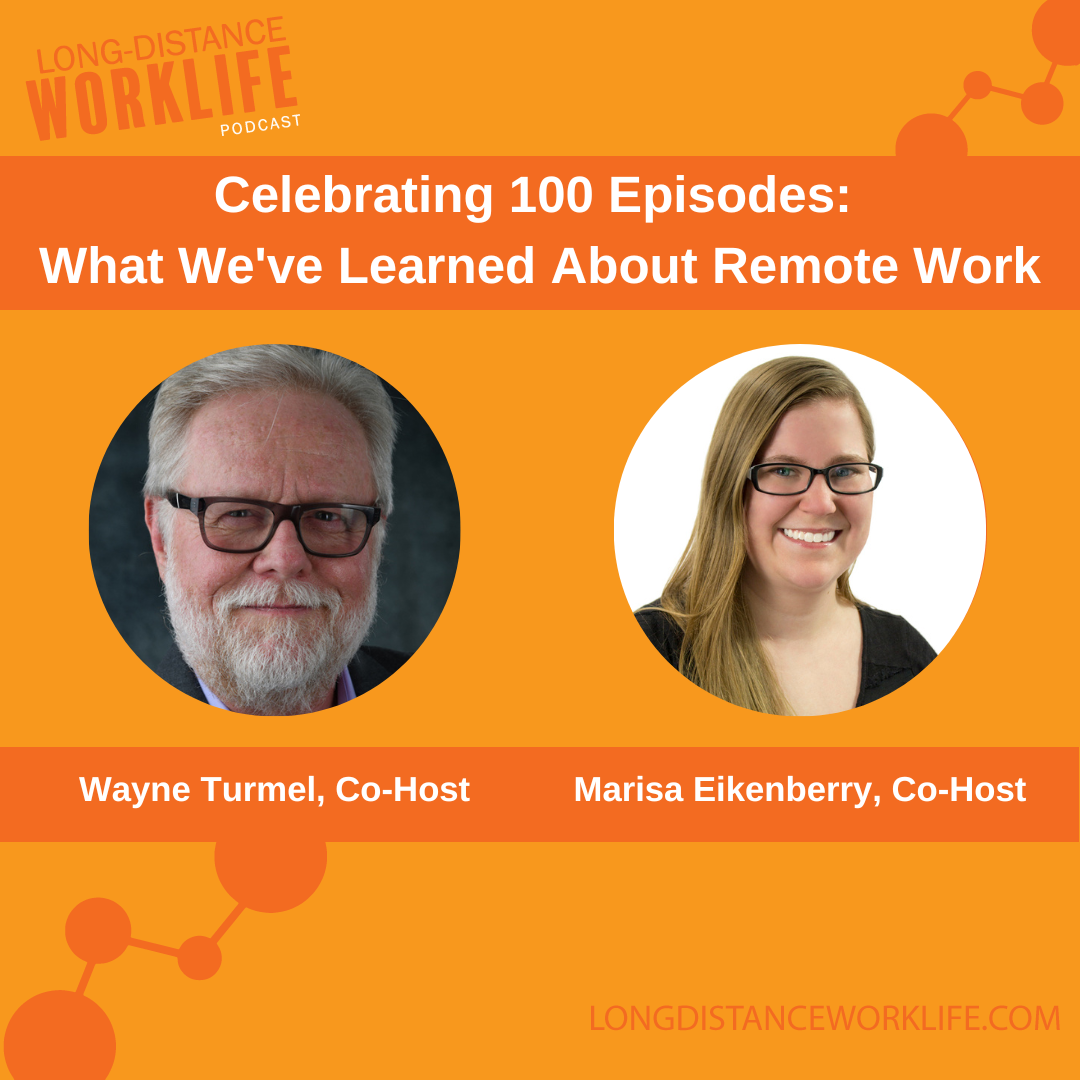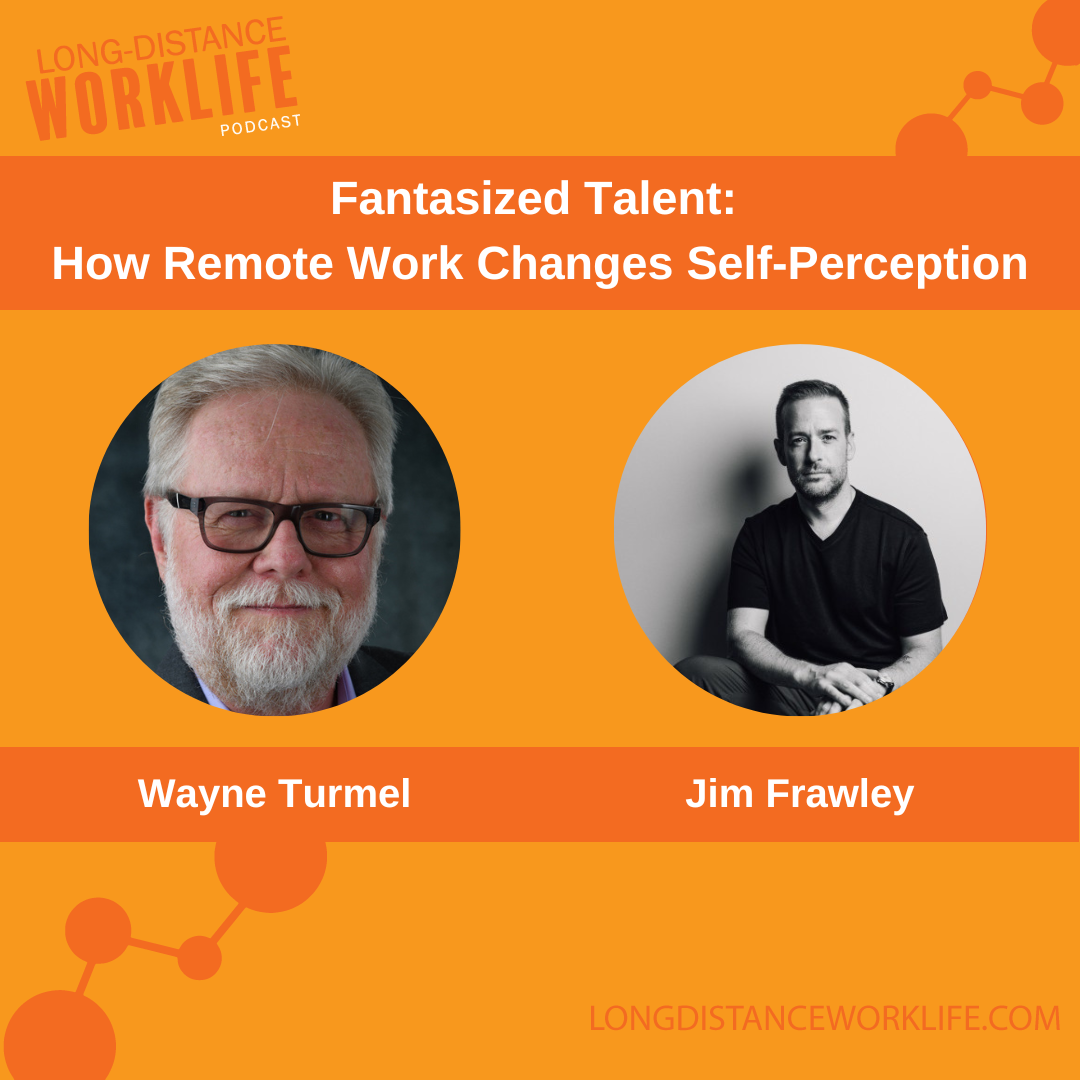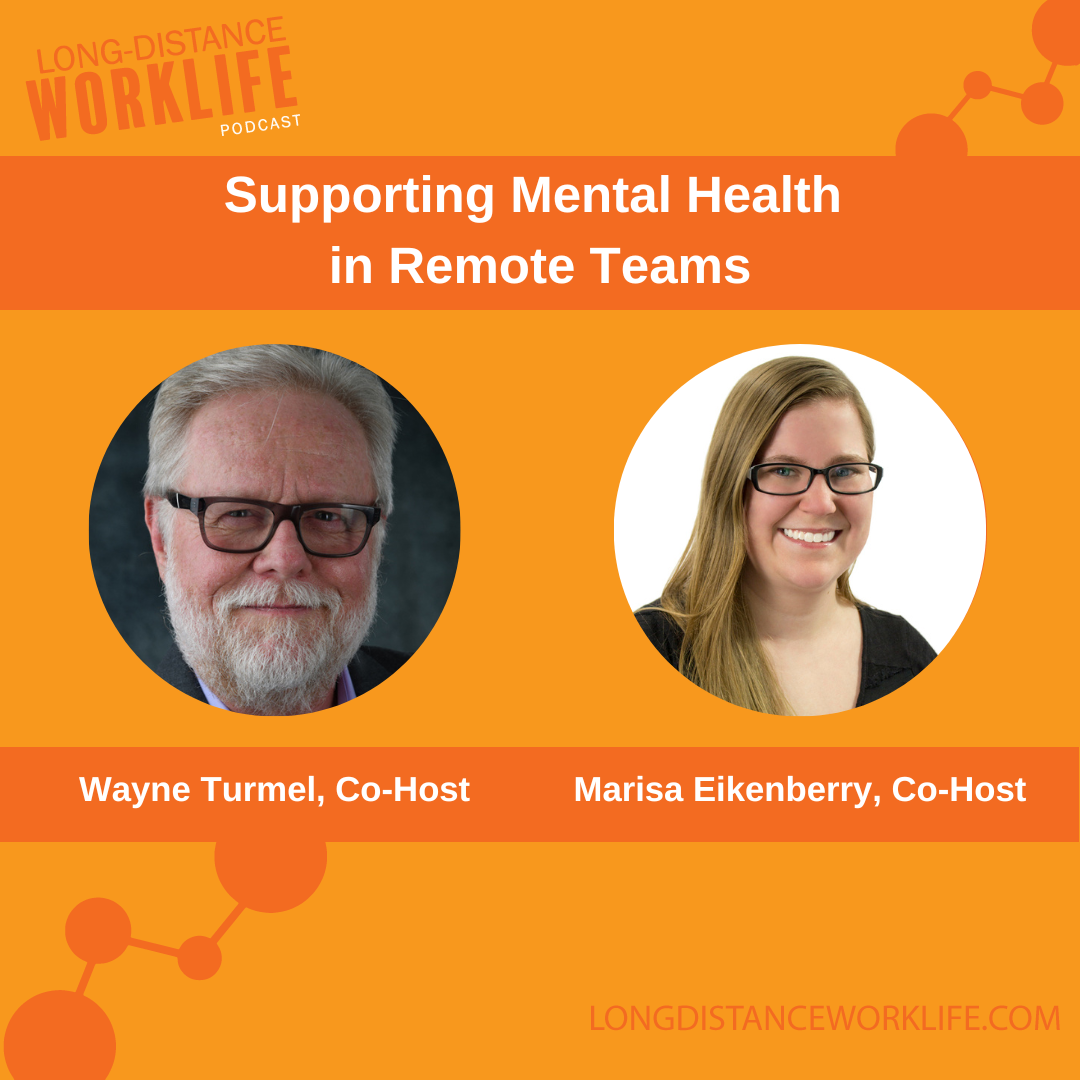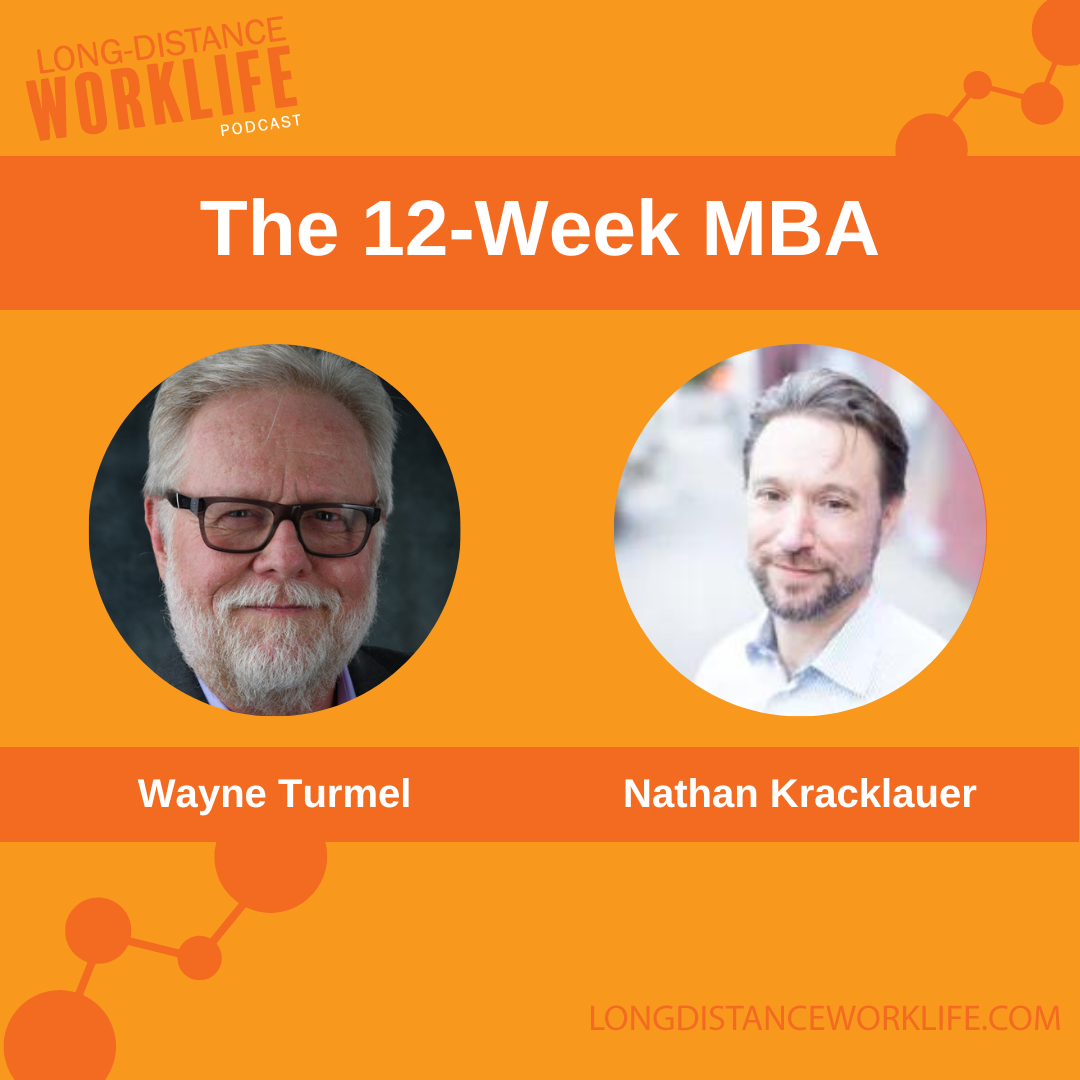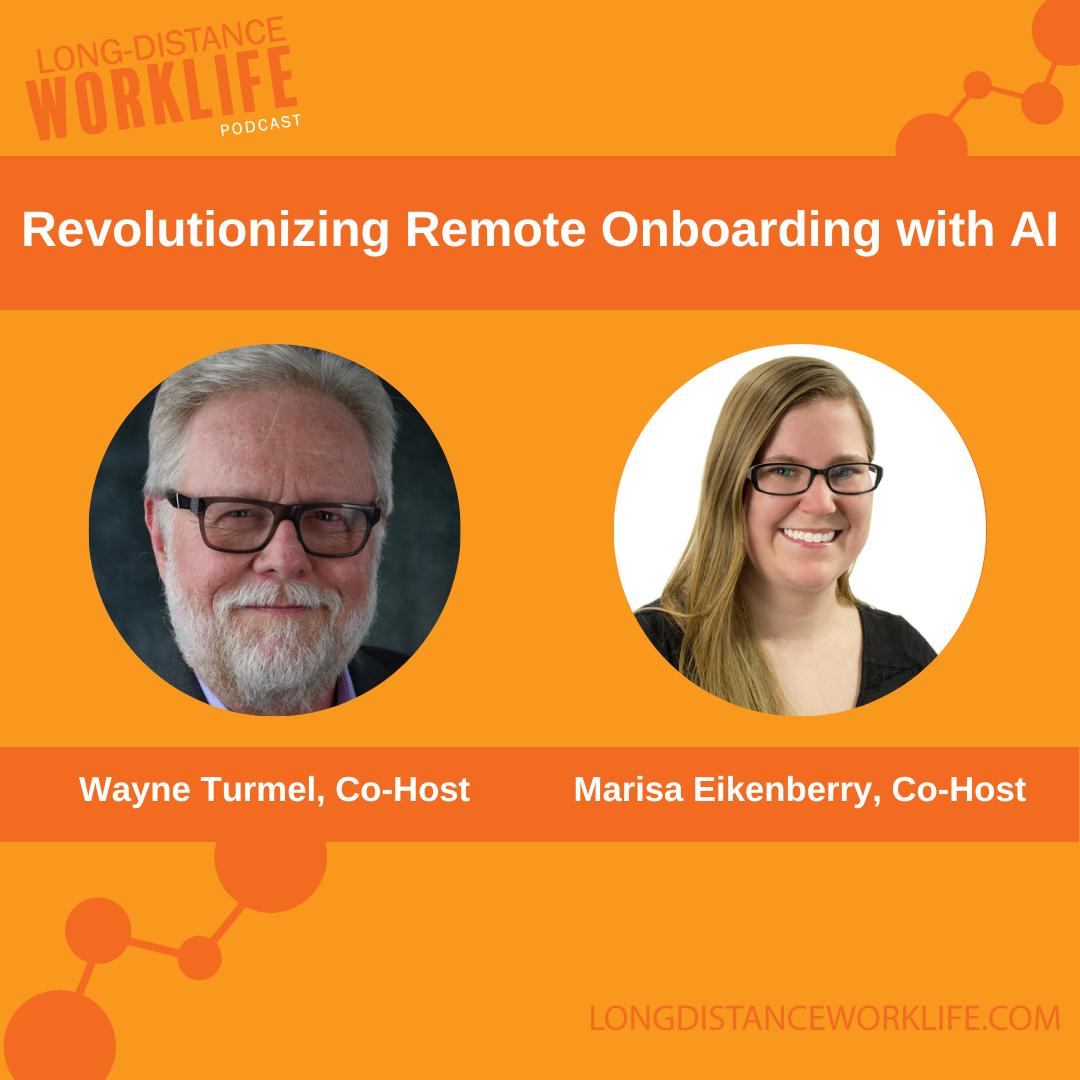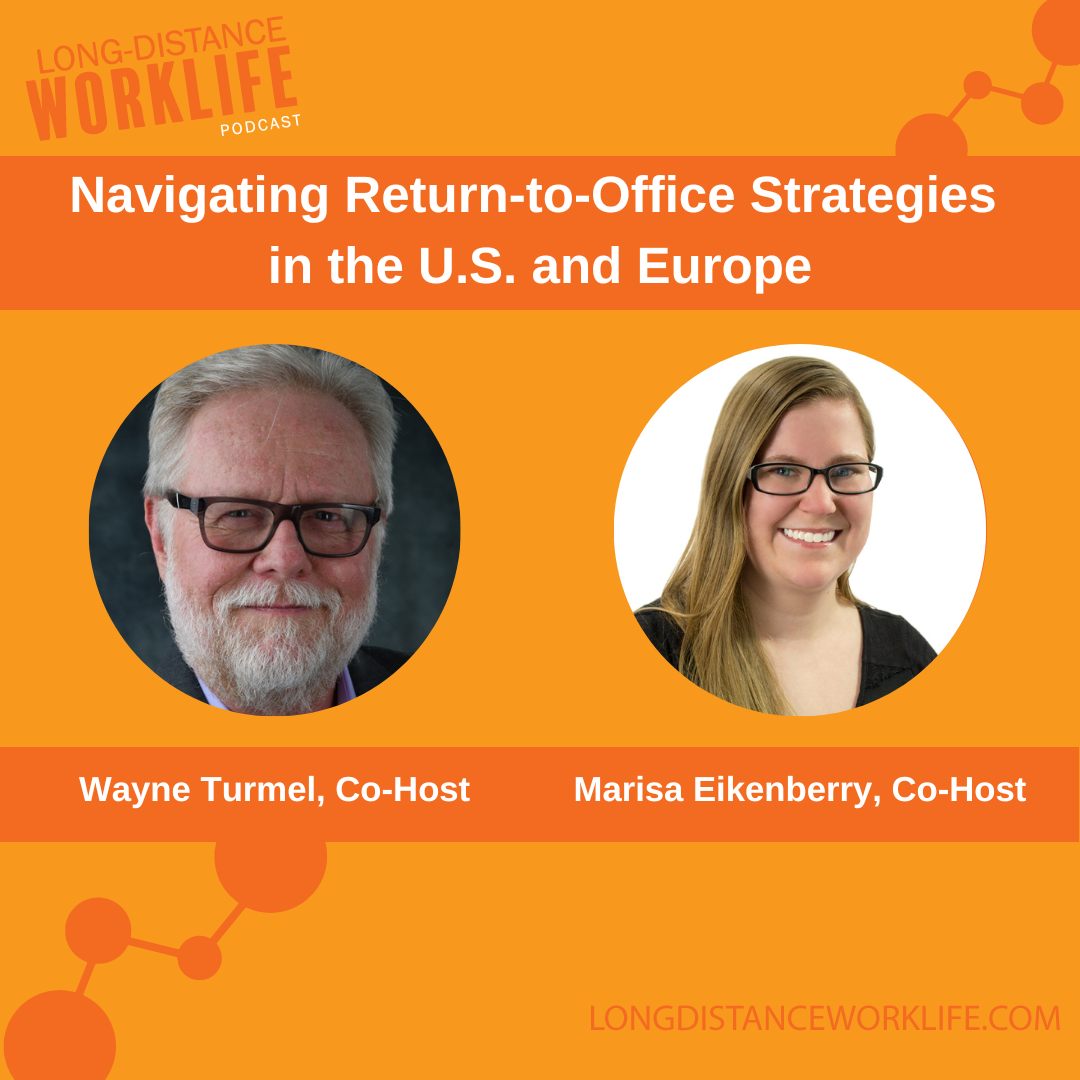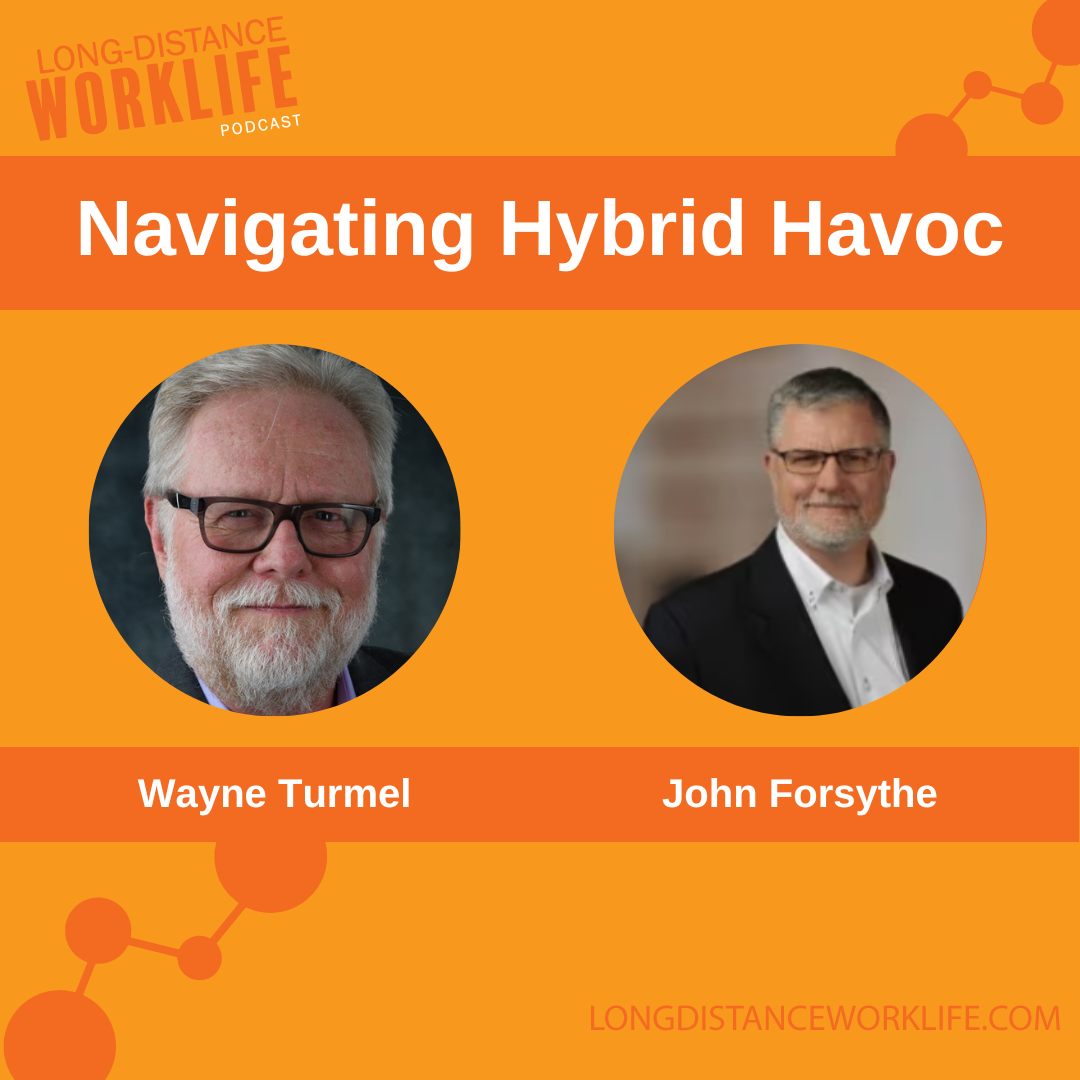Wayne Turmel talks with Alex Geesbreght, co-founder of PRAX Leadership, about the changing landscape of leadership in the remote and hybrid work environment. Alex shares insights on the state of leadership today, the importance of authentic connections, and the skills leaders need to develop to succeed. They discuss emotional regulation, the significance of self-leadership, and how leaders can genuinely connect with their teams despite the physical distance.
Key Points
00;00;08;02 - 00;00;42;27
Wayne Turmel
Hello, everybody. Welcome to the Long Distance Worklife. The podcast where we do our darndest to help you thrive and survive and make sense of the ever evolving world of work, particularly when it comes to remote and hybrid. I am Wayne Turmel. I'm your host. Marisa is not here this week. That's the bad news. The good news is we have another very, very interesting, insightful guest who is going to help us make sense of what is going on out there.
00;00;42;27 - 00;00;53;27
Wayne Turmel
And in this particular case, our guest is Alex Geesbreght, who is with PRAX leadership. Alex, how the heck are you and who the heck are you?
00;00;54;00 - 00;01;11;24
Alex Geesbreght
You. Well, I'm very good, as you can see, because behind me I'm by a beach right now. So you caught me at a very good time. So how I am is great. And who I am is, Alex Geesbreght. I’m co founder of PRAX Leadership and I was fortunate enough to to co-found that with my brother with whom I've worked for a very long time.
00;01;11;24 - 00;01;15;16
Alex Geesbreght
And it's it's a pleasure and it's a pleasure to be here. Thanks for having me.
00;01;15;18 - 00;01;45;00
Wayne Turmel
Well as always, thank you for being had. the world obviously is we're in this state of flux, this remote work. There's hybrid work. Maybe we're working with our team. Maybe we're not. let's start with a really general question. What is the state of leadership there in the workplace today? What are you what are you hearing that's different than it might have been?
00;01;45;03 - 00;01;46;28
Wayne Turmel
say five years ago?
00;01;47;00 - 00;02;11;10
Alex Geesbreght
Yeah, I think generally, first of all, any time any company, devotes any time to their people in terms of leadership development, it's it's good news. You know, you mentioned something there very early on about sort of this hybrid and work away and together. I think that's what a little bit different now than it was five, ten years ago, is that pre-pandemic, the norm was that we were together.
00;02;11;10 - 00;02;41;15
Alex Geesbreght
We had what we used to refer to as hallway conversations, where a lot of very important things happened that you couldn't measure as it became a necessity and then maybe morphed into a bit of a convenience, maybe even for economic reasons, where people started being further and further apart from each other. I think we lost some of our connection in if you look at just generally in the last five years, connectivity is it's sort of an all time high.
00;02;41;15 - 00;02;48;20
Alex Geesbreght
I mean, the number of ways that I could reach you if I wanted to is almost limitless.
00;02;48;23 - 00;02;50;21
Wayne Turmel
Oh, yeah. There is no hiding.
00;02;50;24 - 00;03;10;01
Alex Geesbreght
Right? There's no hiding. But very few people take the time that you have to sit down with another human being and have an interaction with them. So I think that that's changing. I think maybe not for the better. It hasn't really benefited humanity, for the better, because of the lack of opportunities.
00;03;10;03 - 00;03;16;16
Wayne Turmel
Do you think that's because the ease of communication has made it more transactional?
00;03;16;18 - 00;03;41;02
Alex Geesbreght
Man, I, I think I, I've struggled with how to phrase that, and I may have to just steal that because I think that's exactly I think it is first real connection. if I may be digressing a little bit, but I just sort of look at, you know, we're friends in likes have sort of, you know, friendships on social media.
00;03;41;05 - 00;04;01;01
Alex Geesbreght
They've sort of taken the place or satiated our need for actual friends. but but there's a big, huge difference between having an actual friend and somebody who says, your friend online. And I think a lot of times you can sort of low yourself into believing that you have made a connection when all you've had is connectivity.
00;04;01;01 - 00;04;24;00
Wayne Turmel
So if that's the case, as a leader, where do you think leaders in general, and I know your mileage may vary and all human beings are different and all those other lovely disclaimers. But at the end of the day, when we're talking about in general, where do you think leaders are struggling most in terms of connection?
00;04;24;06 - 00;04;50;17
Alex Geesbreght
I think being real, actually, a lot of the pressures that a lot of leaders have, come from sometimes the top, sometimes below them, and sometimes themselves, it's what we refer to as sort of soft skills that people have. But I think it's rooted to, to get to the root of your question, if you're asking me my opinion, I think it's people's comfortability with who they are.
00;04;50;20 - 00;05;13;12
Alex Geesbreght
And, a little bit of trepidation around just being real with their people, in other words, showing vulnerability. I think if you're a parent, I think if you're a boss, there's this tendency to want to be the smartest person in the room all of the time. And I think that leaders do a disservice to those in their charge when they attempt, to portray that.
00;05;13;12 - 00;05;25;26
Alex Geesbreght
Because we're not perfect, we have all kinds of foibles and, and shortcomings. And I think that that's where leaders, if they can become more secure and, with themselves, I think that they become instantly better leaders.
00;05;25;29 - 00;05;49;27
Wayne Turmel
Is is that what you mean? I was, will be links to Alex in practice and all that good stuff on our show notes. dear listener, but I was on your site, and and you kind of divide between, you know, teaching general skills and self leadership. Is that part of that conversation?
00;05;49;29 - 00;06;13;15
Alex Geesbreght
Yeah. One of the things my brother and I, you know, he spent 20 years in the healthcare industry and had a chance to work together. And our company now is, is really the culmination of not just a general personal and professional ethos, but experience, itself. And so what we we bifurcate our company into two things really technical skills.
00;06;13;19 - 00;06;40;27
Alex Geesbreght
Skills base classes that we teach that implement the practice practices and way of of thought. And then the other one is focused on, transformational growth. So it truly is a soft skills based curriculum, in several different curricula where we focus on the self. And I would just say that, you know, I think a lot of times people are people say leadership and sometimes they mean self leadership, and sometimes they just mean being a leader.
00;06;41;00 - 00;07;00;18
Alex Geesbreght
We sort of believe that everybody is a leader, not just because you lead yourself. And when you lead yourself, you have a tremendous capability of leading others. And so focusing on the individual is something that is very, very important to us. And we've seen the benefits there from in reality, as applied to actual companies.
00;07;00;22 - 00;07;23;25
Wayne Turmel
When we're talking about the individual, which is really as we're talking about this show, it's individuals who are listening, right? People who care enough about their leadership and about their work to want to be better. where do you think the areas are that people need to specifically grow? I mean, it's one thing to say, be authentic and be true to yourself.
00;07;23;25 - 00;07;30;07
Wayne Turmel
How the heck do you teach that? I mean, wow, you know, does that be more authentic? Oh, yeah. I'll get right on that.
00;07;30;09 - 00;07;49;06
Alex Geesbreght
Boy. That's, It's really what sort of what? What comes before that. That's a great question, because first of all, I love that you're asking me because a lot of times people throw platitudes and trite phrases like I did. I meant something behind it. But thank you for giving me a chance to explain it. But being more real or being more authentic, you know, I have.
00;07;49;06 - 00;08;14;19
Alex Geesbreght
I truly do believe that you can draw a direct line, almost logistically from being real. Okay, which I'll explain all the way to happiness, which if you sort of think, I don't know, maybe some of your viewers will agree with this, but it's kind of the goal, you know, whether you're whether you're in your life or your personal life or your professional life, which is really not that different.
00;08;14;19 - 00;08;42;15
Alex Geesbreght
You're you're the same person. But that starts with being able to see yourself as flawed, which requires vulnerability to requires a certain level of security. It requires introspection. It requires sitting down in a quiet room some time and turning everything off and saying, actually who I am, who am I? And looking in a mirror figuratively. But in order to do that, you have to be okay with what that reflection will show you.
00;08;42;17 - 00;09;15;10
Alex Geesbreght
And that's scary for a lot of people. But if you will take the time to introspect, to listen to feedback and then go identify the things that are lacking, perhaps in your life, whether they be personal growth skills or technical skills, and address those things. It's incredibly freeing. It can be scary for people, but once you understand what those are and you seek to improve them through people that know more than you, somebody knows more about anything than I do.
00;09;15;15 - 00;09;44;19
Alex Geesbreght
I would go to them. You get feedback, any development requires practice and feedback. And you you seek that out and then you can actually make a positive change where there was once something that you considered to be lacking. So yeah, I mean, I say real and authentic, but it's not about pretending to be those things. It's about actually being those things with an eye toward an improvement that does lead to happiness.
00;09;44;22 - 00;10;05;03
Alex Geesbreght
So I don't know if that makes sense. I see it logistically, and I see them interconnected. I really do see being comfortable or secure with oneself and one's happiness, whether they're at work or at play. as being, one in the same or at least a condition precedent to the other.
00;10;05;05 - 00;10;11;03
Wayne Turmel
Yeah. It feels sometimes when you take leadership training, it's if you can fake sincerity, you got it made right.
00;10;11;06 - 00;10;13;07
Alex Geesbreght
The famous quote. Right.
00;10;13;10 - 00;10;28;11
Wayne Turmel
That's and that's the road that is there. But let me ask you this. Is there science behind this? I mean, is there, something beyond just kind of intuitively knowing that this would make us better?
00;10;28;14 - 00;10;49;09
Alex Geesbreght
Well, there's a tremendous amount. And so one of the things that we focus on is neuroscience, which is kind of this fancy word of the overlap between cognition and our behavior. So our thoughts and our behavior and what we focus on to that end is the alignment of values. And our prioritization in our lives. So we all have these values.
00;10;49;09 - 00;11;02;14
Alex Geesbreght
But if I were to ask you what your values are, maybe not you because you've probably given this more thought than the average person, but a lot of people would just sort of recite aspirational values or things that they believe. They believe.
00;11;02;17 - 00;11;07;00
Wayne Turmel
Okay. So when you see aspirational values, for example. Yeah.
00;11;07;02 - 00;11;31;03
Alex Geesbreght
I, I, I'm a family man, right? But I come home and I watch YouTube videos instead of playing with my kids. Right. You know, so my values, there's an argument to be said that I actually live my values because I live what is actually important to me and what I think about, but I tell you that I'm a family man, but I my behavior doesn't match that, if that makes sense.
00;11;31;07 - 00;11;54;06
Alex Geesbreght
So the alignment of those two things, which again, requires a certain amount of let's introspect, let's find out what our values actually are, and then align that thinking with the behavior itself over time. Not on the Tuesday sort of rah rah session. That's inspirational, but in a hard sort of practice, scientifically, applied way.
00;11;54;08 - 00;12;27;28
Wayne Turmel
I want to get back to this idea of the leaders kind of being self-aware, and especially when we're remote. We are so much in charge of ourselves. Right. Or or we are either in charge of ourselves or left to our own devices, depending on your confidence and competence level. Right? what are we where are these specific skills that leaders can actually build to be better at their jobs?
00;12;27;28 - 00;12;37;28
Wayne Turmel
Right. Specifically, what if I said I need to learn something right now that we make better? What what kind of things are we talking about?
00;12;38;04 - 00;13;13;01
Alex Geesbreght
I would say emotional regulation. So how you influence yourself. So we have an acronym we called Bits which is fully influencing the self. It's all over what it is we do with practice. But just as an example is just emotional regulation, as opposed to dysregulation. So when somebody, when there's a threat, when there's a conflict, when there is something that, frustrates us or throws us off our game and just using sort of just very commonly terms, how do we respond to that?
00;13;13;01 - 00;13;47;11
Alex Geesbreght
Do we go further and further down and, compromise ourselves and others, or are we able to step back a sense, assess who we are, how we're reacting to it and see it more objectively, and then apply the best next case as opposed to reacting in an emotional way. So self-regulation self, emotional regulation is an incredibly important thing for a leader because think about all the damage that everybody's had a boss that, that, that let's call it, flies off the handle or reacts, emotionally.
00;13;47;11 - 00;14;11;19
Alex Geesbreght
And by the way, I am not, I don't use the word emotion and business pejoratively like a lot of people do. I think emotion is a tremendously valuable thing. I think directing that emotion, is incredibly important, and having it be reactionary or emotive is, incredibly damaging.
00;14;11;22 - 00;14;42;25
Wayne Turmel
As you're talking, my brain is doing what it normally does, which is create about five scenarios at once. So let me just ask you about this. It seems intuitively that this might be harder to do at a distance than it is if we're together. If we're together, I'm getting a lot more feet on how to respond. I'm aware of my body language and things because you're right, there is.
00;14;42;28 - 00;14;51;00
Wayne Turmel
Does being remote make it harder to do that? And how do you then, if it is, how do you overcome that?
00;14;51;02 - 00;15;09;19
Alex Geesbreght
First of all, I think it absolutely is. I mean, look for today on as you know, when you look at what has replaced the meeting, it's the zoom meeting, right. And so I really only have to be concerned with what I'm wearing from about here up. and, and I, you know, I don't I could I do in fact have shorts on.
00;15;09;19 - 00;15;35;11
Alex Geesbreght
I don't have to even have shoes on. So there's a certain, lack of thought and forethought that goes into to, being remote. And I love the word you introduced very early on into this, which is it's transactional. And there are so many cues that we don't get when we are not in person. that I do think it's it's clearly damaging.
00;15;35;11 - 00;16;06;25
Alex Geesbreght
I mean, look, I would have much rather sat down with you across from across a table, and I actually, this is better than a phone call. but I can't imagine. And this is just for me. I can't imagine conducting business with leaders. Like, we just have an executive team of 14. We in our former business, we had 4000 employees and we had 200 corporate employees that I interacted with at least once a week, and that those 45 minutes waiting were very, very important to me because I didn't I couldn't spend time with 200 people.
00;16;06;28 - 00;16;31;04
Alex Geesbreght
I could spend a little bit more time with those 14 executives. But if I hadn't sat down and looked at the faces of those 200 people once a week and given them a chance to express what their interpretation of the words that I say, were, I said work, I would have lost them, and I needed to feel not just connectivity with them, but connection with them.
00;16;31;07 - 00;16;49;18
Alex Geesbreght
And as an aside, and one of the things that I would do is I would spend time telling them they would see me fly all over the country. but I would spend time telling them where I screwed up and why we didn't get a contract that they can't, that they don't have to work on because of something I did or something somebody else did.
00;16;49;18 - 00;16;52;00
Alex Geesbreght
But we talked about that openly in person.
00;16;52;02 - 00;17;14;04
Wayne Turmel
This idea of taking it, and it's not just emotional intelligence. It goes beyond just basic the conversation about emotional intelligence, clearly. where's it going? What where do you see these conversations and this kind of thinking what's what's kind of next and where is it headed?
00;17;14;05 - 00;17;17;00
Alex Geesbreght
Well, can I just tell you my dream of where it's headed?
00;17;17;03 - 00;17;19;14
Wayne Turmel
Tell me anything you want, man. I up, all right.
00;17;19;14 - 00;17;47;29
Alex Geesbreght
Okay, so I don't know, I don't know, I don't know if technology Wayne will drive us further from each other or if we will somehow harness it to become actually closer. But I will tell you what I want from companies, in families and teams is I want there to be sort of a global realization that none of those constructs exist.
00;17;48;01 - 00;18;30;21
Alex Geesbreght
they don't exist without people, without an individual. And I think that this world will be better off. Certainly companies, certainly families. And on a team level, when people and companies understand that you don't improve groups, you don't improve teams, you improve individuals. And so our clients, the ones that we want, which is represents what I think is euphoric in terms of how a company would, go about improving their workforce and creating a happier workforce is for them to sort of step back and instead of just the lip service of our people are the most important thing in our company, and this is who we are, where people can be.
00;18;30;24 - 00;19;03;26
Alex Geesbreght
That's great. But what does that mean? And instead of approaching it with the bottom right of the PNL in mind and KPIs and metrics, I wish that they would start to look at the improvement of their people a little bit more altruistically, which is tough to ask a company to do that, but to approach it as if what they've been saying forever was actually true, meaning that their people are actually the most important and invest in them and, invest in them for the sake of them.
00;19;03;28 - 00;19;21;23
Alex Geesbreght
It's okay if they want to do the math and say, look, if Bob gets better and three two gets better and Sue gets better, we're all probably going to be better. And that's okay. But just for a minute, stop with the metrics, stop with the KPIs and ask yourself, when I leave a movie, how do I know if I like that movie?
00;19;21;25 - 00;19;41;29
Alex Geesbreght
Do I write down, oh, I laughed three times. I didn't go to the bathroom. I, you know, I barely ate my popcorn. Yes, I like the movie. No, you just know. And one other thing I would say is that if anybody ever has an opportunity or a need to go seek the advice of somebody else, maybe even professionally, they go to a counselor.
00;19;42;01 - 00;20;03;19
Alex Geesbreght
How often does a counselor sit down and say, okay, let's develop some metrics and KPIs around your, your wellness and, and how you're going to improve. Of course they don't. They connect with the person, they sit there, they do what you're doing, they ask questions. They listen. By the way, just to answer your other question, that is another thing that leaders could do better.
00;20;03;21 - 00;20;23;26
Alex Geesbreght
listening and empathy and and you maybe have to fake that until you make it. But, there are several examples, but I'm digressing. But I would just say, my dream is that companies would actually do what they say is important to them, and that is invest in their people for their people, not for the company.
00;20;23;26 - 00;20;26;13
Wayne Turmel
Madness. I tell you, that's crazy. Talk.
00;20;26;20 - 00;20;30;05
Alex Geesbreght
It is why I said it was a dream.
00;20;30;08 - 00;20;57;02
Wayne Turmel
Alex, thank you so much. This is great. Been a great conversation. Alas, our time is up. thank you so much for being with us. We really appreciate it. Of course, you can learn more about Alex, about Praxis, all that good stuff, by visiting the longdistanceworklife.com. You will find a transcript of this show. You can find past episodes.
00;20;57;07 - 00;21;22;14
Wayne Turmel
You can leave us comments, show ideas, questions, vicious attacks, anything that you want to tell us, you can reach out to either myself or Marisa on LinkedIn or through email. And we want to remind you that a lot of you came to us because of our book, The Long-Distance Leader Rules for Remarkable Remote Leadership, that that sucker came out in 2018.
00;21;22;15 - 00;21;58;29
Wayne Turmel
September 17th of this year. We are in the second edition and updated new information. edition of The Long-Distance Leader Rules for Remarkable Remote Leadership. The second edition goes on sale September 17th, and we hope that you will check that out. in the meantime, ladies and gentlemen, boys and girls, if you want to be a better leader in a remote environment, if you want to work on some of the things that Alex told us about, check out our long leadership series.
00;21;58;29 - 00;22;27;24
Wayne Turmel
We offer it three four times a year as a public enrollment program. You can find anything you need in terms of information, pricing, all that good stuff at KevinEikenberry.com. And of course, if you enjoyed the show, tell a friend like and subscribe. I refuse to say smash the like button because I am not 12. but but, you know, you could push a gem again.
00;22;27;24 - 00;22;45;12
Wayne Turmel
Let us know that you want to like and subscribe to the show. So that is it. Ladies and gentlemen, for another edition of The Long Distance Work Life. Next week, we will be back with Marisa. I am Wayne Turmel. Thank you for being with us. Don't let the weasels get you down.
Featured Guest

Name: Alex Geesbreght
Bio: Alex Geesbreght is the Founder and Partner of PRAX Leadership, LLC and Geesbreght Group LLC. Previously, he was the Owner of Emergency Medicine Consultants, where he served as General Counsel, President, and Chief Strategy Officer for over sixteen years until its sale in 2018. He also owned and led PhysAssist Scribes, the nation’s first medical scribe company.
Timestamps
00:00 Introduction
00:43 Meet Alex Geesbreght
01:45 The State of Leadership Today
02:50 Impact of Remote Work on Connection
04:24 The Importance of Authenticity
07:23 Teaching Authenticity in Leadership
10:28 The Role of Neuroscience
12:27 Key Skills for Remote Leaders
14:51 Challenges of Remote Leadership
17:14 The Future of Leadership
Related Episodes
Additional Resources
- Learn more about Wayne Turmel
- Email Wayne Turmel
- Connect with Wayne Turmel on LinkedIn
- Learn more about Marisa Eikenberry
- Email Marisa Eikenberry
- Connect with Marisa Eikenberry on LinkedIn
- Purchase a copy of The Long-Distance Leader
- Purchase a copy of The Long-Distance Teammate
- Purchase a copy of The Long-Distance Team
- The Kevin Eikenberry Group
Pre-Order The Long-Distance Leader
Perfect your remote leadership skills with the updated edition of "The Long-Distance Leader" by Kevin Eikenberry and Wayne Turmel, featuring new principles and proven strategies for today's hybrid work environments.
